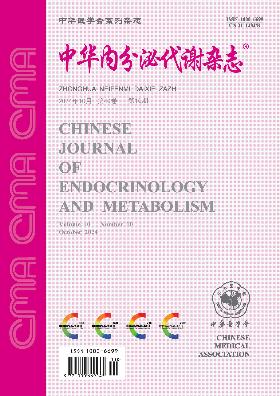The use of antidiabetic medications in community-dwelling diabetic patients in Shanghai in 2018
Q4 Medicine
引用次数: 0
Abstract
Objective To investigate the use of diabetes medications and their effects on the community diabetic patients in Shanghai, China, and provide the evidence for the use of antidiabetic drugs in diabetic patients in the region. Methods The data were from a database of a 2018 Survey on Community Diabetes Mellitus in Shanghai, China. There were 4 612 subjects included in this cross-sectional study in 2018. According to the use of antidiabetic drugs, the population was divided into untreated group, single drug group, double drugs combination group and multi-drugs combination group, to compare the fasting blood glucose, glycosylated hemoglobin, BMI and prevalence of diabetic complications in different groups. Results About 70.9% of the 4 612 patients used hypoglycemic agents, 34.8% used metformin, 35.1% used sulfonylureas, 22.9% used alpha glycosidase inhibitors, and 13.8% used insulin. The prevalence of diabetic nephropathy, retinopathy, neuropathy, stroke, and diabetic foot was higher in the combination than in the untreated and single-drug users (P 0.05). Conclusion The most common used antidiabetic drugs in diabetic patients in Shanghai are metformin, sulfonylureas, α-glycosides inbibitor, and insulin. The blood glucose control in diabetic patients in Shanghai community is not good enough. Patients with a longer duration of diabetes, a lower rate of HbA1C at goal, and a higher prevalence of diabetic complications may be more prone to use multiple hypoglycemic drugs. Key words: HbA1C; Fasting blood glucose; Body mass index; Antidiabetic drugs2018年上海市社区糖尿病患者抗糖尿病药物使用情况
目的了解上海市社区糖尿病患者糖尿病药物的使用情况及其影响,为该地区糖尿病患者使用抗糖尿病药物提供依据。方法数据来自中国上海市2018年社区糖尿病调查数据库。2018年,共有4612名受试者参与了这项横断面研究。根据抗糖尿病药物的使用情况,将人群分为未治疗组、单药组、双药联合组和多药联合组,比较不同组的空腹血糖、糖化血红蛋白、BMI和糖尿病并发症的发生率。结果4612例患者中约70.9%使用降血糖药物,34.8%使用二甲双胍,35.1%使用磺脲类药物,22.9%使用α-糖苷酶抑制剂,13.8%使用胰岛素。联合用药组糖尿病肾病、视网膜病变、神经病变、中风和糖尿病足的患病率高于未治疗组和单药组(P<0.05)。结论上海地区糖尿病患者最常用的抗糖尿病药物是二甲双胍、磺酰脲类药物、α-糖苷抑制剂和胰岛素。上海社区糖尿病患者血糖控制效果不理想。糖尿病持续时间较长、糖化血红蛋白达标率较低、糖尿病并发症发生率较高的患者可能更倾向于使用多种降糖药物。关键词:HbA1C;空腹血糖;体重指数;抗糖尿病药物
本文章由计算机程序翻译,如有差异,请以英文原文为准。
求助全文
约1分钟内获得全文
求助全文
来源期刊

中华内分泌代谢杂志
Medicine-Endocrinology, Diabetes and Metabolism
CiteScore
0.60
自引率
0.00%
发文量
7243
期刊介绍:
The Chinese Journal of Endocrinology and Metabolism was founded in July 1985. It is a senior academic journal in the field of endocrinology and metabolism sponsored by the Chinese Medical Association. The journal aims to be the "Chinese broadcaster of new knowledge on endocrinology and metabolism worldwide". It reports leading scientific research results and clinical diagnosis and treatment experience in endocrinology and metabolism and related fields, as well as basic theoretical research that has a guiding role in endocrinology and metabolism clinics and is closely integrated with clinics. The journal is a core journal of Chinese science and technology (a statistical source journal of Chinese science and technology papers), and is included in Chinese and foreign statistical source journal databases such as the Chinese Science and Technology Papers and Citation Database, Chemical Abstracts, and Scopus.
 求助内容:
求助内容: 应助结果提醒方式:
应助结果提醒方式:


